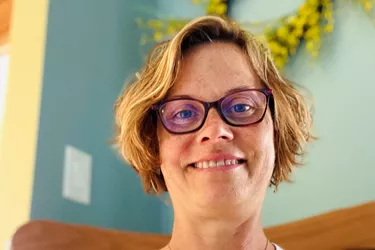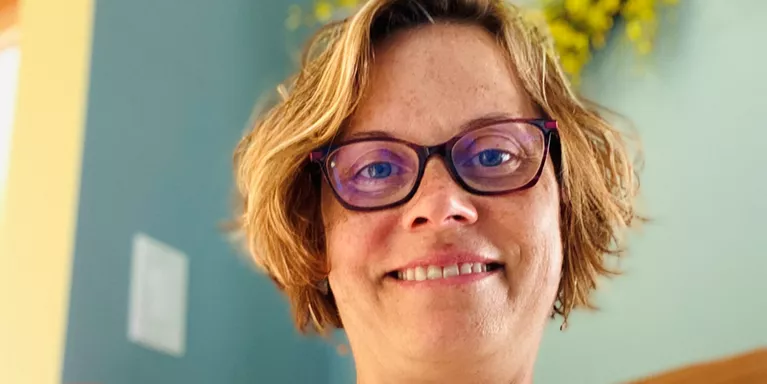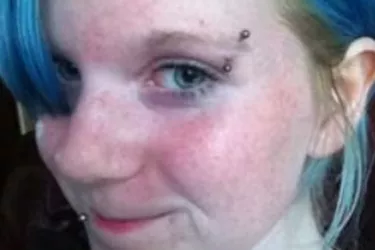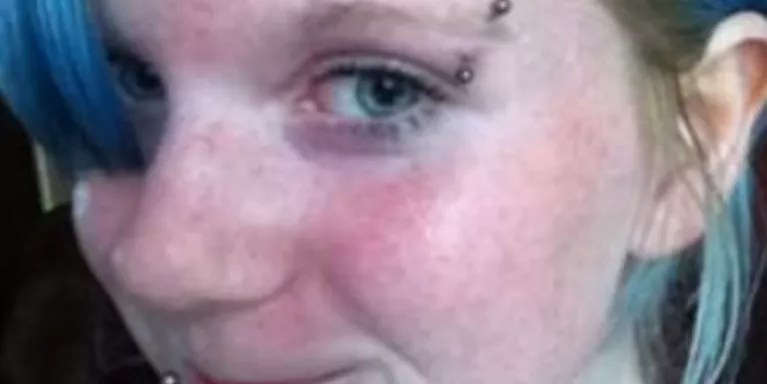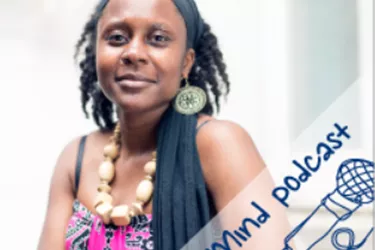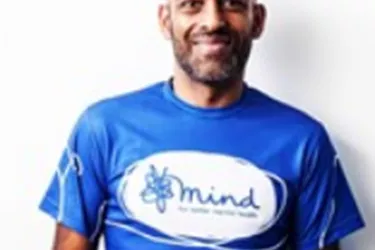I'm not defined by my BPD
Although her mental health has led to some mistakes in Katherine's past, it does not define her present.
I have had serious mental health problems most of my life. I have a diagnosis of borderline personality disorder and experienced depression, mania, delusions and hallucinations. I have attempted suicide on several occasions and completed numerous acts of self-harm. I have spent ten years of my life as a psychiatric inpatient including four years in a high security hospital and nine months in prison following a serious crime.
"I have spent ten years of my life as a psychiatric inpatient."
However, I have also worked, completed a degree and teaching qualifications, have friends and interests and live independently. I probably look and seem ordinary and ‘normal’ to most people who come across me.
So, which one of these descriptions is really me? Of course, they both are.
All of us are a complicated mixture of personality traits. We all have our qualities and our difficulties. We all deserve to have our views respected and be loved for who we are as well as having to take responsibility when make mistakes or harm others.
"All of us are a complicated mixture of personality traits."
This is no different for anyone who has received a mental health diagnosis. I am not just a disordered collection of symptoms nor is anybody else.
I suspect most people have not heard of borderline personality disorder let alone understand it.
It is a complicated condition and sufferers are often misunderstood and unfairly treated by others including some mental health professionals. Although I have met many kind and skilful mental health professionals sadly I am where I am today largely despite the mental health treatment I have had not because of it.
I have been described as “attention seeking”. It is a normal part of being human to want and need attention. If someone is asking for attention in unhelpful ways it would be more constructive if others saw this as a response to traumatic experiences rather than punishing and ignoring the person. When I have used unhealthy behaviour to communicate my feelings what has helped has been feeling listened to and having my distress taken seriously and understood. I now work teaching adults with learning disabilities who can find it difficult to communicate their needs and my experiences help me recognise that challenging behaviour is usually about trying to communicate feelings rather than seeking attention and treat them with compassion and understanding.
I have been described as “difficult”. I can be difficult to understand particularly as my mood can change very quickly and extremely with no obvious cause, but I would describe myself as resilient and tenacious. I have managed a mental health advocacy service, worked with adults with dementia and learning disabilities and have always tried to stand up for other’s rights and enable their voices to be heard even in the face of opposition. It was difficult for me to get a job again after spending so long in hospital, but I persevered and coped with many rejections.
"It is true that I find it difficult to connect with other people, but I am kind, compassionate and fair."
I have been described as “lacking empathy”. It is true that I find it difficult to connect with other people, but I am kind, compassionate and fair. In my work I am passionate about treating everyone as unique individuals with their own individual needs and I think that I am a good friend to others.
I have been described as “lacking the ability to see things through”. It is true that I have had problems knowing who I am and what I want to do in life, but I have also completed a degree course, teaching qualifications and worked full time. When my life has broken down it has been because I have struggled on for a long time not feeling able to tell anybody how I feel until things have become unbearable.
People with a borderline personality disorder are often seen as “violent”not helped by how they are sometimes portrayed in popular culture and the media.
I did commit a crime that threatened violence (although I didn’t harm anyone), but I am in the minority. People with any mental health diagnosis are much more likely to harm themselves than anyone else. They are also much more likely to be the victims of crime than the perpetrators.
Those who have presented a risk to others should, of course, be contained for as long as society deems they need to be punished, treated or still present a risk to others. However, they are still people with the same emotions and needs as everybody else. Most of them have family and friends who care about them and most of them will, at some point, re-enter society.
"I have survived and achieved a lot as have many others with a borderline personality disorder diagnosis."
I remember watching a T.V. advert for a charity asking for money to support abused children whilst an inpatient in a high security hospital. As I looked around the room at the faces staring at the images of traumatised children it was as if they were looking through a window into their own pasts and I suspected most people would not be so keen to donate money to support their care and treatment now as they would to the representations of their childhood selves.
While I still have some difficulties and things about my life I want to change and see a therapist to help with this I have survived and achieved a lot as have many others with a borderline personality disorder diagnosis.
I am a person just like everybody else, not a monster who needs to be controlled and contained. Everybody has the right to feel understood, accepted and loved for who they are and above all have their voice heard.


Information and support
When you’re living with a mental health problem, or supporting someone who is, having access to the right information - about a condition, treatment options, or practical issues - is vital. Visit our information pages to find out more.
Share your story with others
Blogs and stories can show that people with mental health problems are cared about, understood and listened to. We can use it to challenge the status quo and change attitudes.










